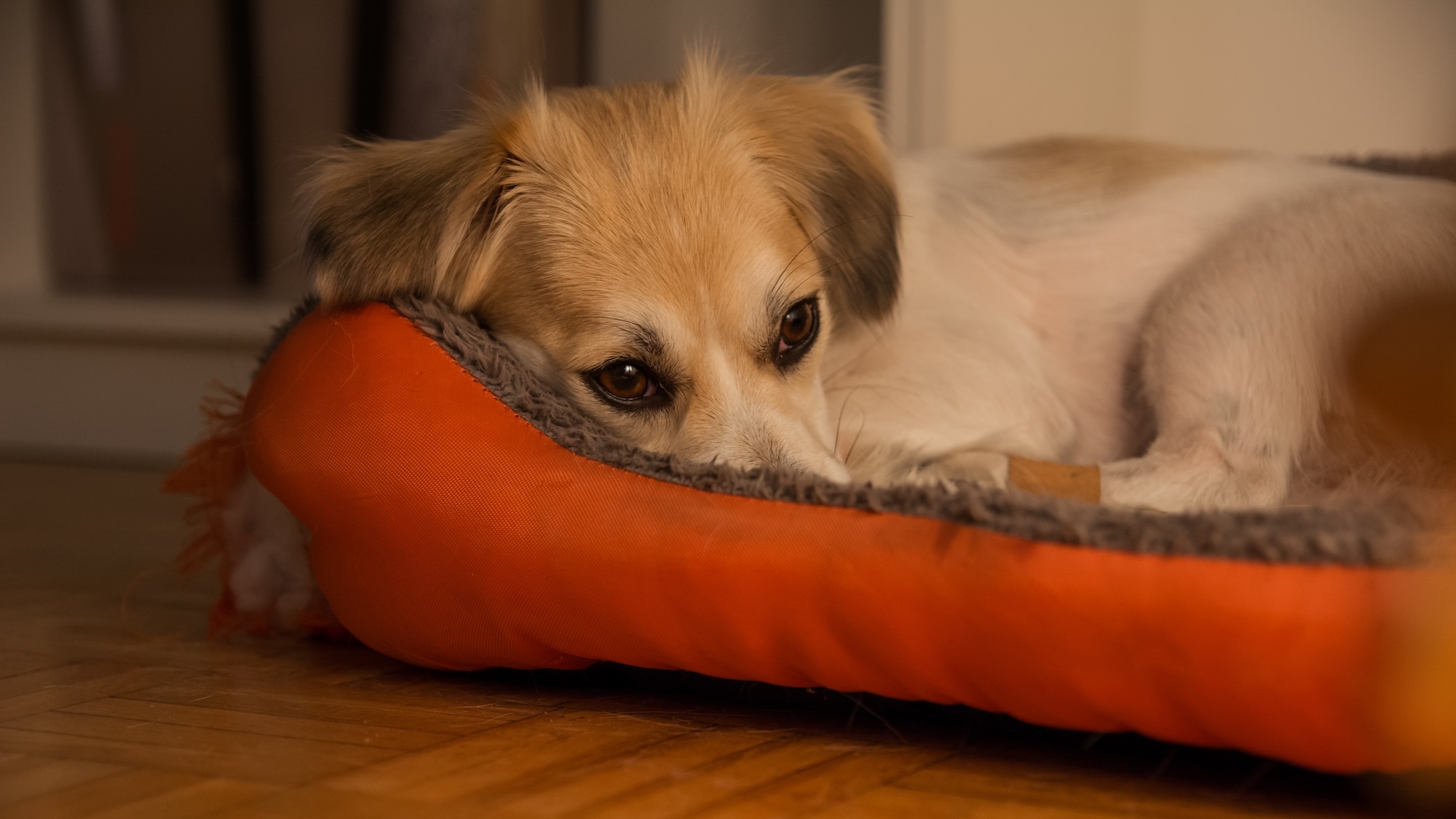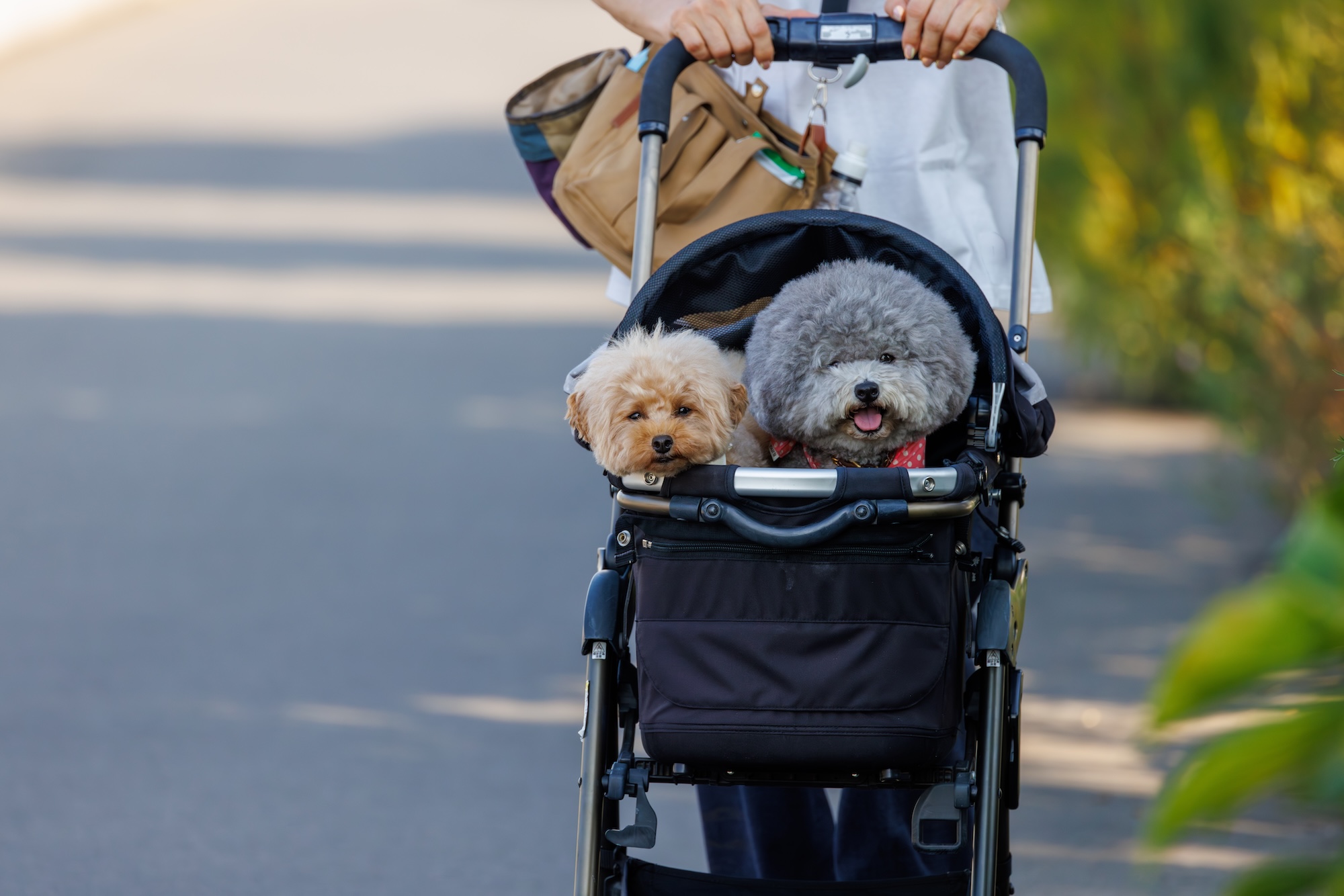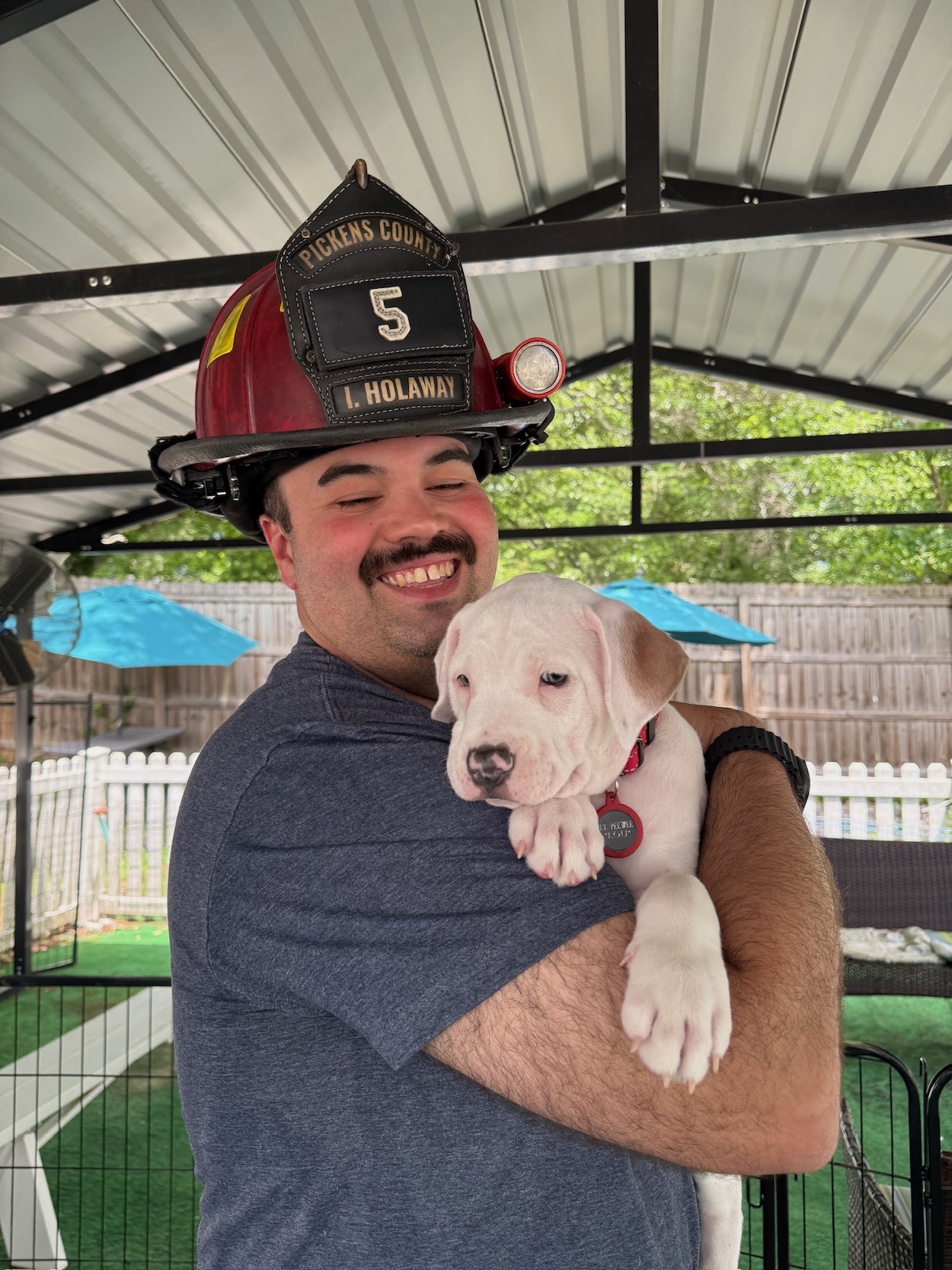MD asks: Do dogs know when you are away, and do they keep track of time? I feel guilty leaving for a week’s vacation.
Dear MD:
It’s safe to say that dogs know the difference between when we’re around and when we aren’t—after all, many of them celebrate when we get home.
Having said that, there’s a lot you can do to keep your dog happy at times when you can’t be with them. Read on for some ideas, plus experts’ thoughts about how dogs keep track of time.
Dogs don’t live only in the moment
Maybe because dogs can be so exuberant about whatever is happening right now, some people say that they only live “in the moment”—but this isn’t true. Dogs can be very present in the moment, but they do not live entirely in the now. In his book Dogs Demystified, ethologist Dr. Marc Bekoff writes that dogs’ “past influences them and they think about the future.” He adds that “Many dogs also seem to have a sense of passing time, as in, they know when it’s time for their walk or when it’s time to eat.”
Dogs plan, strategize, and change their behavior based on experience. Research has shown that they remember events. They may not be making plans that stretch out over several years, but dogs know that something outside of the individual moment exists.
Videos of dogs ecstatically greeting their humans when they return after long absences are strong anecdotal evidence that they see a difference between your going to the other room for a minute and being overseas for six months.
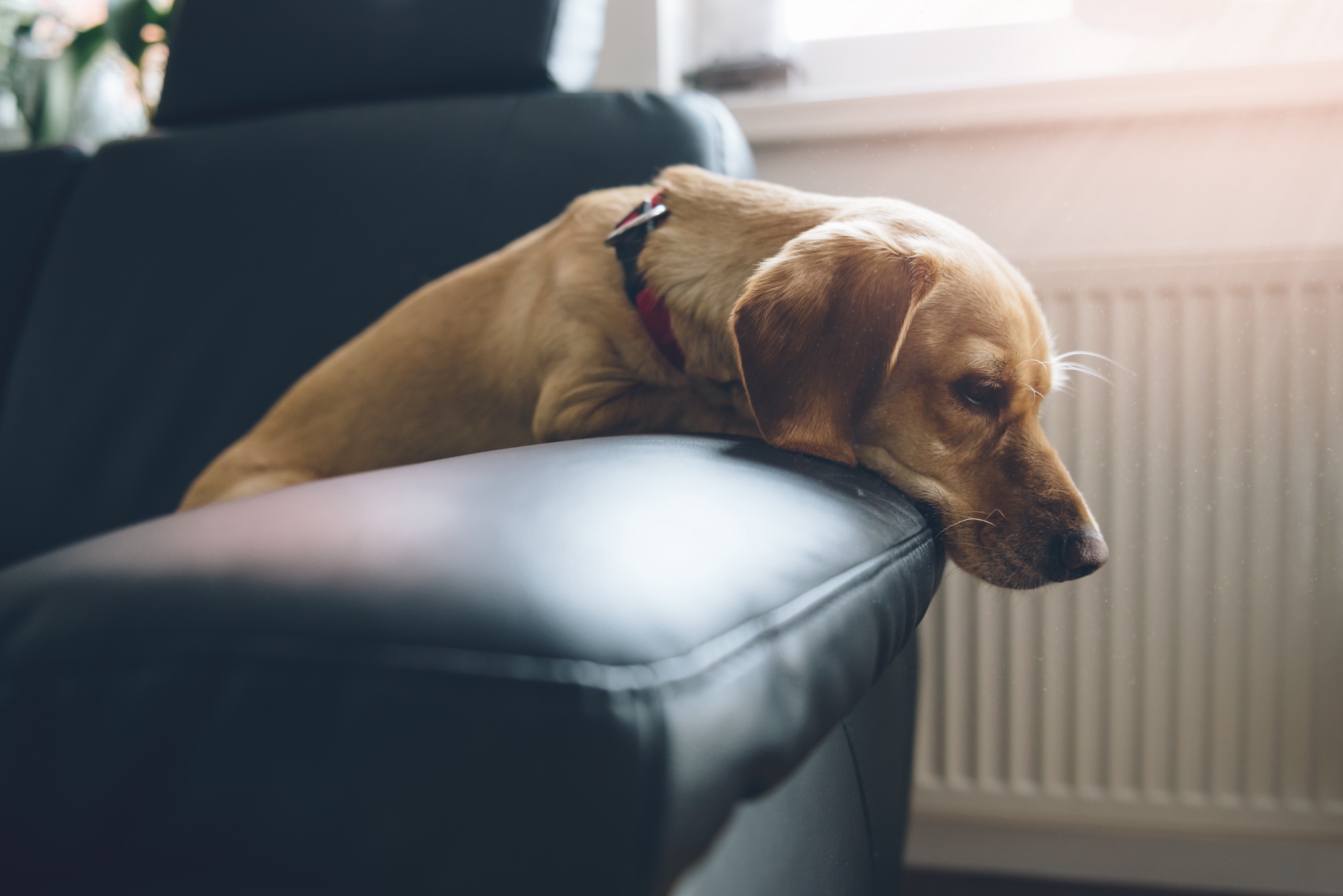
Dogs know when time is passing—but they probably experience it differently than people do
Dogs’ senses are different from humans’. Dr. Alexandra Horowitz has speculated that they can “smell time”—for example, as an absent human’s scent dissipates.
In an article on this subject, Dr. Stanley Coren mentions a BBC demonstration in which waving a human’s smelly shirts around a room seems to change a dog’s behavior around the time said person is due home. As both Dr. Coren and the BBC narrator point out, this is not a scientific experiment and is far from ironclad proof that the dog is using smell to tell time. To mention one other possibility at random, the dog could simply be comforted by the scent.
In his article, Dr. Coren also writes about the role of a dog’s circadian rhythm—the daylong cycle that makes sure the body does the right things at the right times of day; for example, sleeping at night and being awake during the day.
Backing up for a second (or however long it takes), how do people know that a certain amount of time has passed? Sometimes you have a clock or a watch, but not always. There are many ways that you perceive time passing. Why would a dog be fundamentally different? The evidence we have makes it clear that, one way or another, dogs know when we’re with them or not, and can tell the difference between our being gone for a second and a week.
Dogs want quality time with us
Dogs are social animals, and company is important to them. When we wrote about how to make your dog happy, Dr. Clive Wynne, Director of the Canine Science Collaboratory at Arizona State University, talked to us about the power of being with your dog. Compared to wolves, dogs have genetic differences that make them well-suited to being in the company of people, and they want to be with their favorite humans. Our article on the subject goes into more detail, but the headline is that it matters how long you spend with your dog, and that you’re present in the moment and engaged with them when you can be.
When we spoke with Dr. Erin Hecht, who studies dogs’ brain anatomy at Harvard, for an article about dog cognition, she told us that “breeds that were historically specialized just for human companionship had a significant link with the brain network that’s involved in social interaction and communication.” This suggests that selective breeding has changed dogs’ brains to make them better at connecting with people.
When we wrote about whether dogs can grieve humans and animals who die, Dr. Wynne told us: “Dogs miss people who are absent… but I don’t believe they understand death as such—so I don’t imagine that they actually grieve as we understand [it.] I don’t think they understand that a deceased person is never coming back… I don’t think a dog knows the difference between ‘I’m dead’ and ‘I’ve gone to Europe for six weeks.’”
But, regardless of their specific interpretations of the ways dogs behaved during the prolonged or permanent absence of someone they loved, every expert we talked to agreed that the dog would sense this absence and that it would matter to them. Whether you’re hanging out on the couch or out on a walk, being near your dog and paying close attention to them is likely to improve their life.
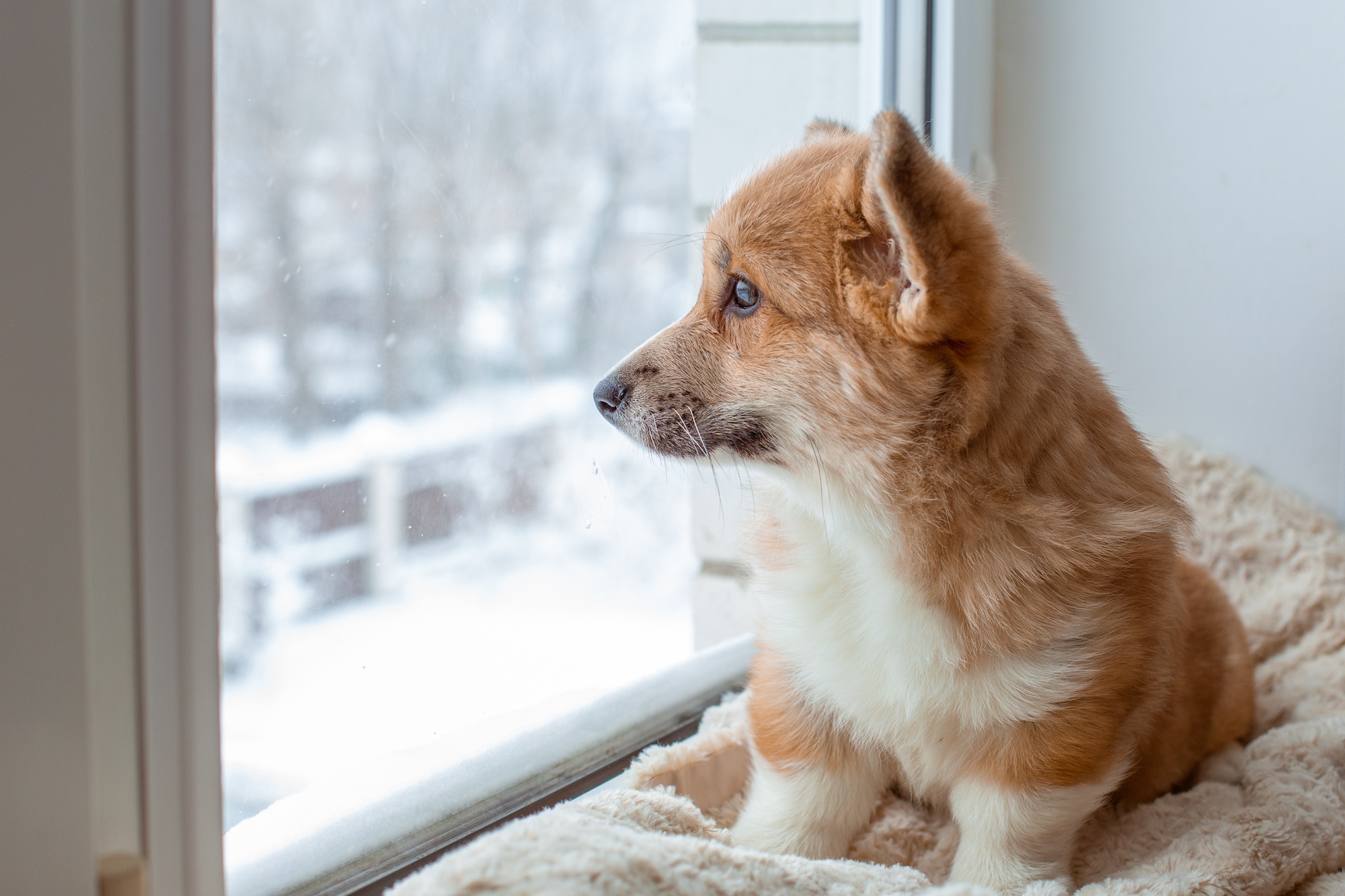
Company and things to do make time without us easier for dogs
If you’re like us, you want to be with your dog all the time. But, sadly, many of us have to be apart from them at least once in a while. Going to an office or taking a trip without your dog doesn’t mean you’re a bad dog person. And, when you can’t be together, you can make your dog more comfortable until you return.
If you’re worried that your dog is getting lonely, think about how you can help them feel better. Your best option if you’re taking a trip and your dog can’t come with you might be to leave them with someone you trust—especially someone they already know and like. Whether it’s someone staying at your home, or your dog going to stay somewhere else, they will need companionship and supervision while you’re away. Our articles about traveling with your dog and whether to bring your dog with you to various places—including restaurants and stores—can help you think through your choices.
When you’re out for shorter periods during the day, have someone come by to walk and play with your dog. Of course your dog needs to eat and go to the bathroom, but that’s not the only reason they need company. Physically, mentally, and emotionally, dogs are not suited to be alone for a long time. Make sure that your dog has problems to solve, things to chew and smell—and maybe some items with your scent—so that your absence won’t be miserable for them. “Time flies when you’re having fun” feels true for humans—and, all in all, most dogs will be more content with playmates and activities than sitting around alone all day.
And, even when you’re around, brain games, exercise, and “sniffy walks” can enhance a dog’s quality of life.
So, while dogs aren’t checking their watches or marking their calendars, research and the observations of dog people all around the world tell us that they can keep track of time.
